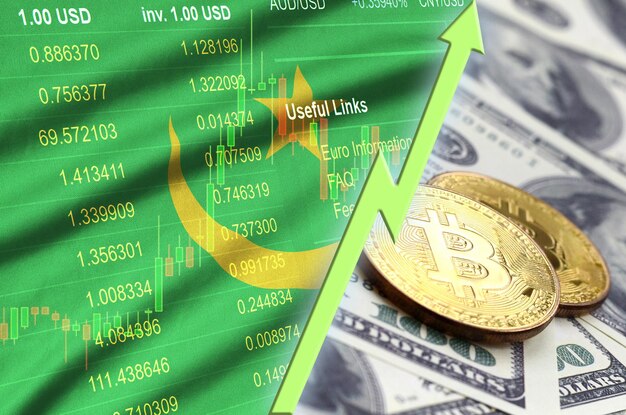Is Forex Trading Permissible in Islam? Navigating the Complexities 🌍📈
Delving into the rapidly evolving world of forex trading, many Muslim investors often grapple with a pivotal question: Is forex trading halal or haram in Islam? This query isn't just about financial interests but also intertwines deeply with religious and ethical considerations. As trading in foreign exchange becomes increasingly accessible and popular, understanding its stance within Islamic finance is essential for Muslim traders looking to align their investment decisions with their faith.
Understanding Forex Trading in Simple Terms
Forex, or foreign exchange trading, involves the buying and selling of currencies with the objective of making a profit. It's the world's largest financial market, with trillions of dollars traded daily, and operates 24 hours, five days a week. Traders speculate on currency pairs, predicting whether a currency will strengthen or weaken against another.
How Forex Trading Works
- Currency Pairs: Traders focus on currency pairs like EUR/USD (Euro/US Dollar), betting on the relative strength of one currency over another.
- Leverage: Offers traders the ability to control a large position with a relatively small amount of money.
- Market Analysis: Can be technical, based on charts and patterns, or fundamental, focused on economic indicators and news.
With a rudimentary understanding of forex, the primary concern remains whether this form of trading is permissible under Islamic law.
The Islamic Finance Perspective on Forex Trading
The Shariah Principles
Islamic finance is governed by Shariah law, which outlines certain principles that financial transactions must adhere to:
- Prohibition of Riba (Usury): Earning interest is not allowed in Islamic finance.
- Avoidance of Gharar (Uncertainty): Transactions should not involve excessive uncertainty or speculation.
- Ethical Investment: Investments should be ethical and avoid harming society or the environment.
Forex trading, being speculative in nature, poses certain challenges when aligning with these principles. However, many financial scholars and institutions offer differing opinions on its permissibility.
Divergent Views on Forex Trading
Halal Consideration: Some scholars argue that forex trading, if conducted ethically and within certain guidelines, can be considered halal. This includes trading without interest and using contracts that minimize excessive uncertainty.
Haram Perspective: Others contend that the speculative nature of forex inherently involves a degree of uncertainty (gharar) and can lead to gambling-like behavior, which is prohibited in Islam.
Conditional Acceptance: Some scholars offer a middle ground, suggesting that forex trading may be permissible if conducted through Islamic accounts that mitigate interest and excessive risk.
Navigating Forex Trading within Islamic Guidelines
For those eager to delve into forex while adhering to Islamic principles, exploring Islamic forex accounts is a prudent step.
Features of Islamic Forex Accounts
- No Riba: These accounts typically eliminate overnight interest charges on positions that remain open for more than 24 hours.
- Reduced Gharar: They may implement specific rules to avoid excessive speculation, such as clear trade terms.
- Halal Contracts: The use of forward contracts that comply with Islamic finance ethics.
Practical Considerations for Muslim Traders
- Choose Reputable Brokers: Opt for brokers who offer Islamic accounts and have a clear understanding of Shariah principles.
- Understand the Terms: Ensure trade terms and conditions align with Islamic ethical considerations.
- Consult with Scholars: Engage with Islamic finance experts to receive guidance tailored to individual situations and regions.
Broader Ethical Implications in Forex
The Importance of Ethical Trading
Beyond just adhering to religious law, ethical trading is about fairness and responsibility. Forex traders should consider the impact of their actions on global economies, the environment, and vulnerable populations.
Community Impact
Forex trading, when practised ethically, can contribute to economic stability by facilitating international trade and providing liquidity to the market. However, irresponsible trading can lead to significant financial losses and market manipulation.
Key Takeaways for Mindful Forex Trading 🎯
Forex trading is not merely a financial activity but a complex interaction of ethics, legality, and personal judgment. Here are some practical pointers for Muslim traders contemplating forex:
- Research Thoroughly: Understanding forex markets and their alignment or conflict with Islamic values is key.
- Consult Resources: Engage with Islamic financial resources and authorities for ongoing education.
- Adopt a Balanced Approach: Weigh potential risks and rewards against ethical considerations and personal comfort levels.
Summary of Considerations for Islamic Forex Trading 📌
| Aspect | Consideration | Emoji Highlight |
|---|---|---|
| Riba | Ensure accounts don't involve interest rates | ⚖️ |
| Gharar | Choose options that minimize uncertainty | 🔍 |
| Ethical Investing | Investments should contribute positively to society | 🌱 |
| Islamic Accounts | Look for accounts that adhere to Shariah principles | 📜 |
| Scholarly Guidance | Regularly consult with Islamic finance experts | 📚 |
In conclusion, while opinions on whether forex trading is halal or haram in Islam vary widely, a balanced and informed approach can help investors make ethical and financially sound decisions. Understanding the nuances of Islamic finance, consulting with knowledgeable scholars, and selecting appropriate trading options can guide Muslim traders towards a path that respects both their financial goals and religious beliefs.

